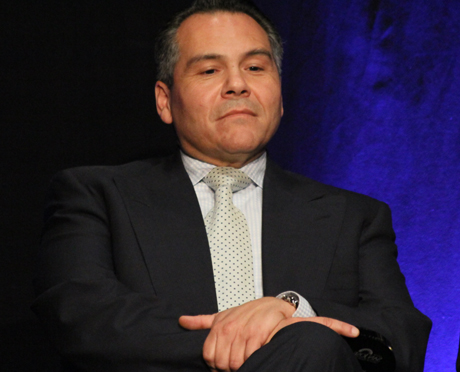For nearly two months, San Jose Councilman Xavier Campos has repeatedly refused to talk with Metro/San Jose Inside about fictitious business filings he and incarcerated former county Supervisor George Shirakawa Jr. initiated for their past political campaigns. The business filings had identical names to their political committees.
An experienced political consultant described the filings as “somewhere between suspicious and corrupt,” as they could have been used to keep duplicate bank accounts under the radar. Campos has consistently ignored Metro/San Jose Inside’s requests for comment while raising funds for his re-election bid to the San Jose City Council.
On Thursday, however, Campos finally addressed the unusual fictitious business filings, when Metro/San Jose Inside sent reporter Stephen Layton to the councilman’s public office hours at Mayfair Community Center. Registered for the event under his own name as a San Jose resident concerned about crime, Layton recorded the brief conversation with Campos, which took place in a public facility, and the councilman’s chief of staff, Nicole Willett.
Campos answered a question about crime and police staffing for roughly 10 minutes until Layton interjected. The reporter noted that it is election season before directly asking Campos why he created a fictitious business filing for his 2010 campaign. Campos was caught off guard and Willett immediately cut in to find out more about Layton, who then disclosed that he was reporting for Metro and recording the conversation.
Campos then offered the following explanation for why he filed for a fictitious business name: “Because I had to open up a bank account for my council race and you can’t just open up an account under a person’s name,” he said. “You can’t do that.
This is true, however, filing for a fictitious business name to set up a campaign account is a highly unconventional and unnecessary step. The IRS grants tax I.D. numbers directly to candidates, who must then show proof of pulling campaign forms to open a bank account.
Creating a fictitious business filing, or a D.B.A. (doing business as), allows a person to open a bank account under that assumed name, but they can use their social security number to open a bank account instead of acquiring an IRS-issued tax I.D.
Campos created a campaign account and a fictitious business filing under the name “Xavier Campos for City Council.” He also did something similar for a failed 2004 school board race, listing his mother and Shirakawa as copartners. Rosa Campos told San Jose Inside that she has no recollection of her son’s fictitious business filing for that campaign.
More than a dozen elected officials, political consultants and election experts told Metro/San Jose Inside that they have never heard of a candidate creating a fictitious business filing to open a campaign bank account.
The Fair Political Practices Commission (FPPC) has been investigating Campos’ 2010 campaign since last April, when Metro/San Jose Inside reported that he used the same campaign treasurer—Linda Delgado—as Shirakawa, who is currently in jail on a yearlong sentence after the District Attorney’s office and FPPC uncovered $130,000 in campaign funds he had funneled into a secret bank account.
On Thursday, Campos contended that he complied with state campaign laws.
“It was regulated by the FPPC,” he said, “so the FPPC kept track of all of my accounts.”
Willett demanded that Layton delete the tape of his conversation with Campos, citing California law on recording conversations. While state wiretapping laws require all parties be made aware of confidential conversations that are being taped on private property, it does not prevent the recording of in-person conversations in public spaces.
“The statute, however, specifically excludes from its application any conversations made in public places, government proceedings, or in circumstances where the participants of the conversation could reasonably expect to be overheard or recorded.”
Nonetheless, Layton complied with Willett’s request and deleted the recording.
Before being told to leave, Layton asked Campos if Shirakawa instructed him on creating fictitious business filings. The councilman answered no.


The paranoia this guy must live with. He’ll dread his own community office hours now. At least he didn’t pull his “I don’t know anything” routine this time and try to blame Gorgeous George for his account. I guess he could technically still blame his mom for setting it up that way but that would be shady even for this guy.